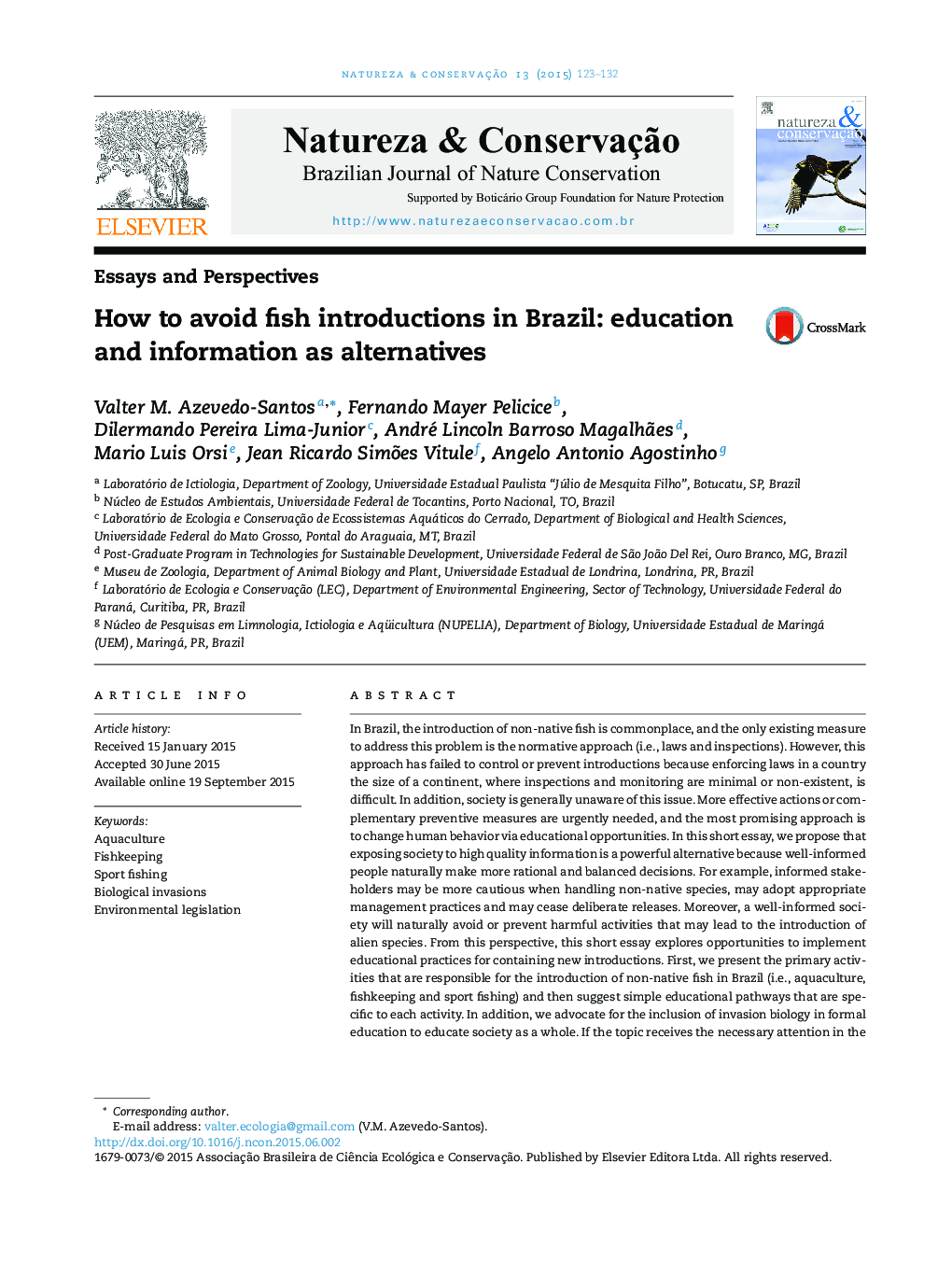| Article ID | Journal | Published Year | Pages | File Type |
|---|---|---|---|---|
| 4400844 | Natureza & Conservação | 2015 | 10 Pages |
In Brazil, the introduction of non-native fish is commonplace, and the only existing measure to address this problem is the normative approach (i.e., laws and inspections). However, this approach has failed to control or prevent introductions because enforcing laws in a country the size of a continent, where inspections and monitoring are minimal or non-existent, is difficult. In addition, society is generally unaware of this issue. More effective actions or complementary preventive measures are urgently needed, and the most promising approach is to change human behavior via educational opportunities. In this short essay, we propose that exposing society to high quality information is a powerful alternative because well-informed people naturally make more rational and balanced decisions. For example, informed stakeholders may be more cautious when handling non-native species, may adopt appropriate management practices and may cease deliberate releases. Moreover, a well-informed society will naturally avoid or prevent harmful activities that may lead to the introduction of alien species. From this perspective, this short essay explores opportunities to implement educational practices for containing new introductions. First, we present the primary activities that are responsible for the introduction of non-native fish in Brazil (i.e., aquaculture, fishkeeping and sport fishing) and then suggest simple educational pathways that are specific to each activity. In addition, we advocate for the inclusion of invasion biology in formal education to educate society as a whole. If the topic receives the necessary attention in the educational curriculum, then education will play a central role in creating new behavioral standards, awareness and responsibility at different societal levels, with the primary goal of reducing the rate of new fish introductions.
